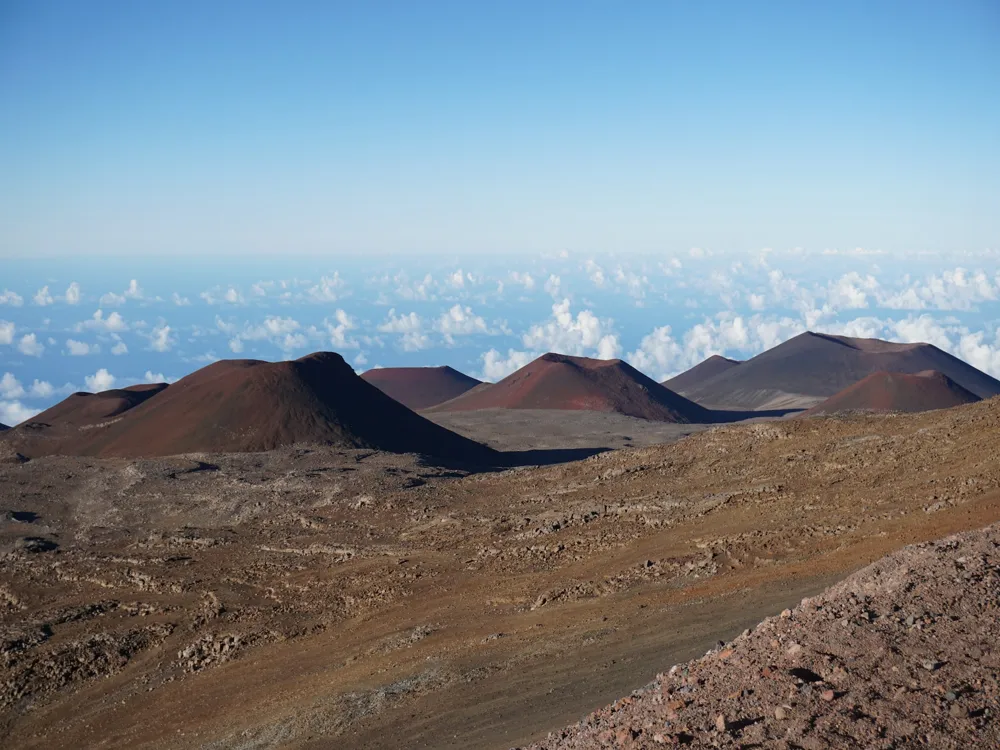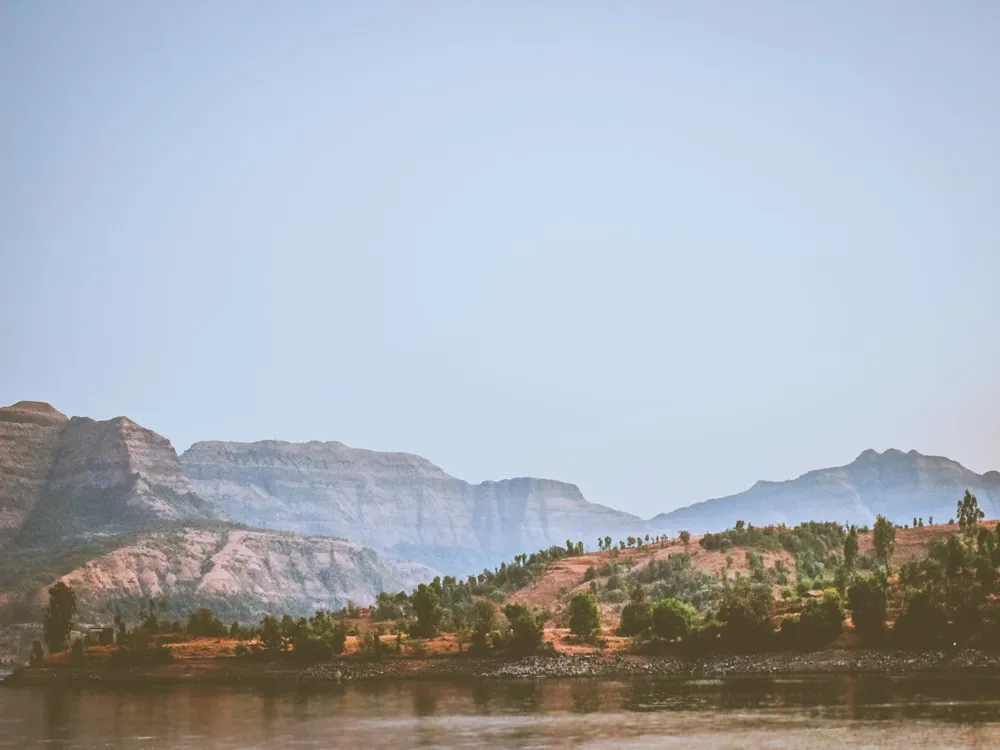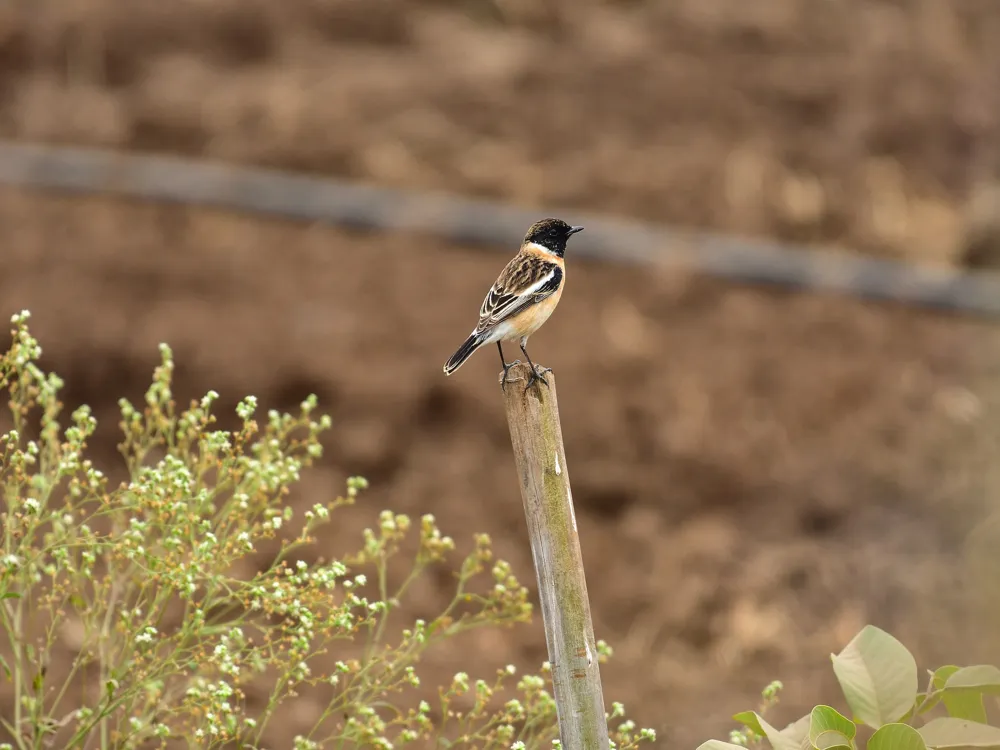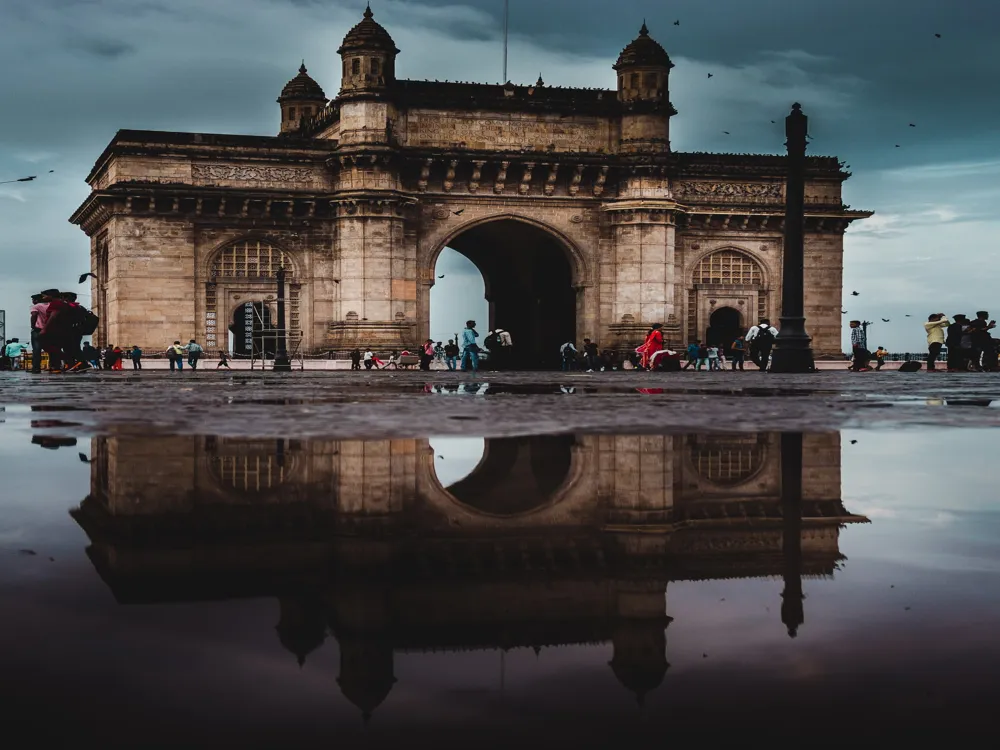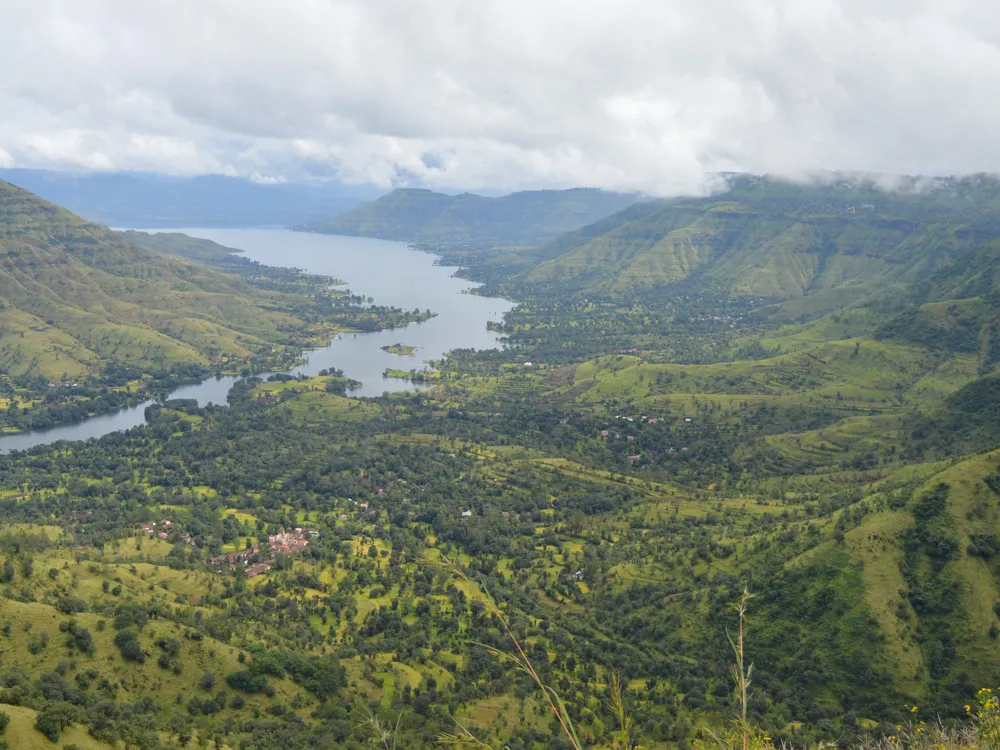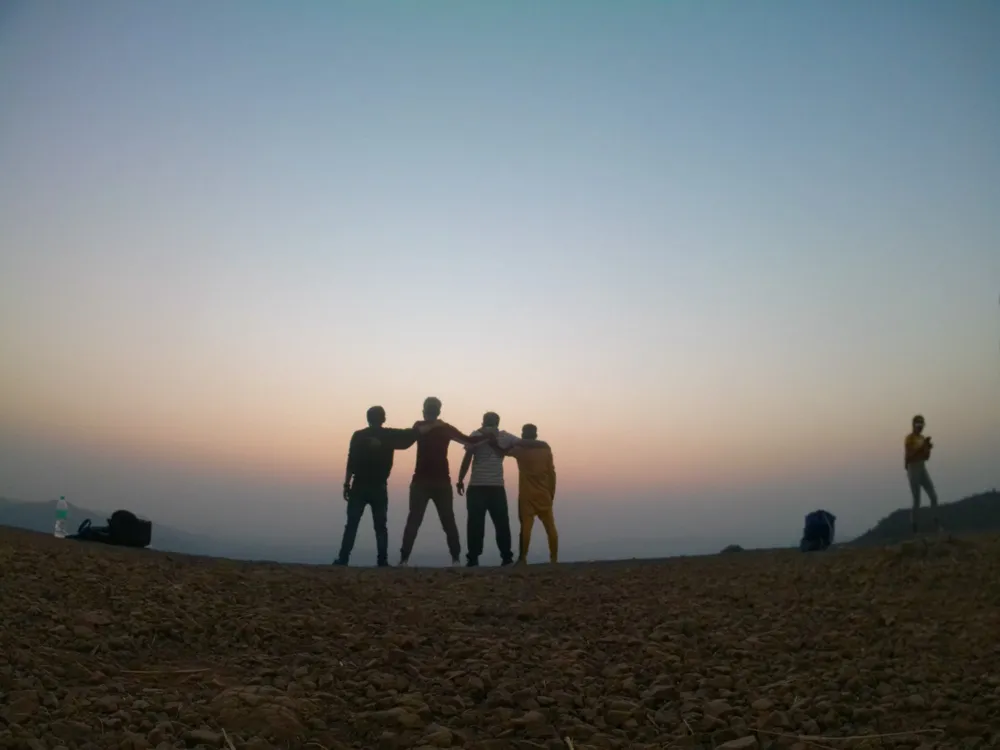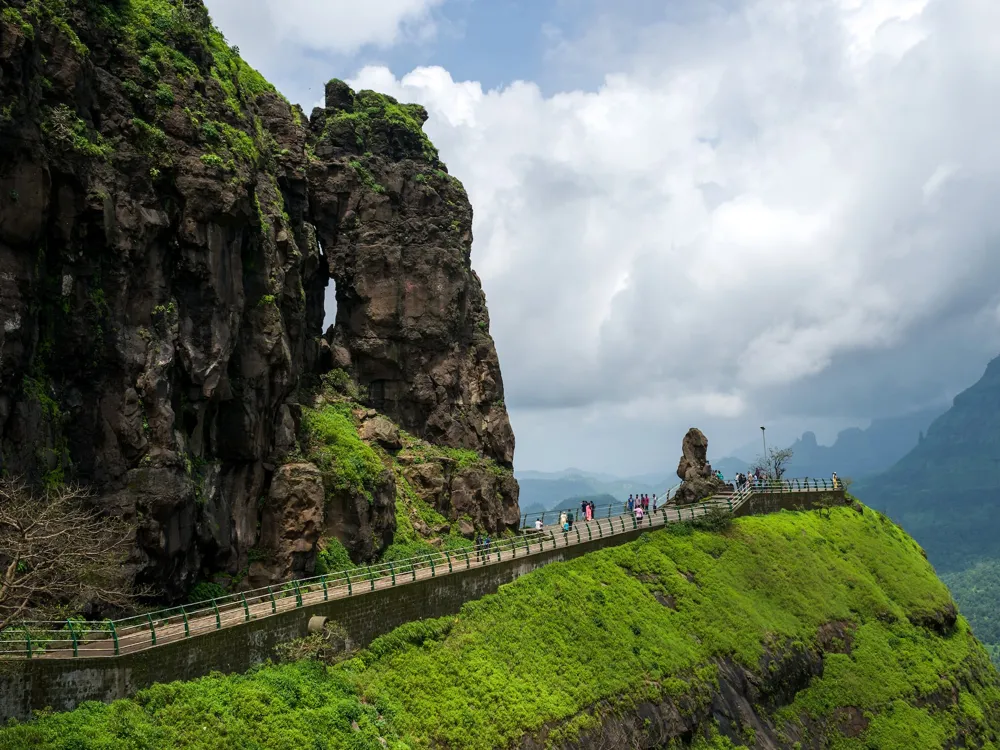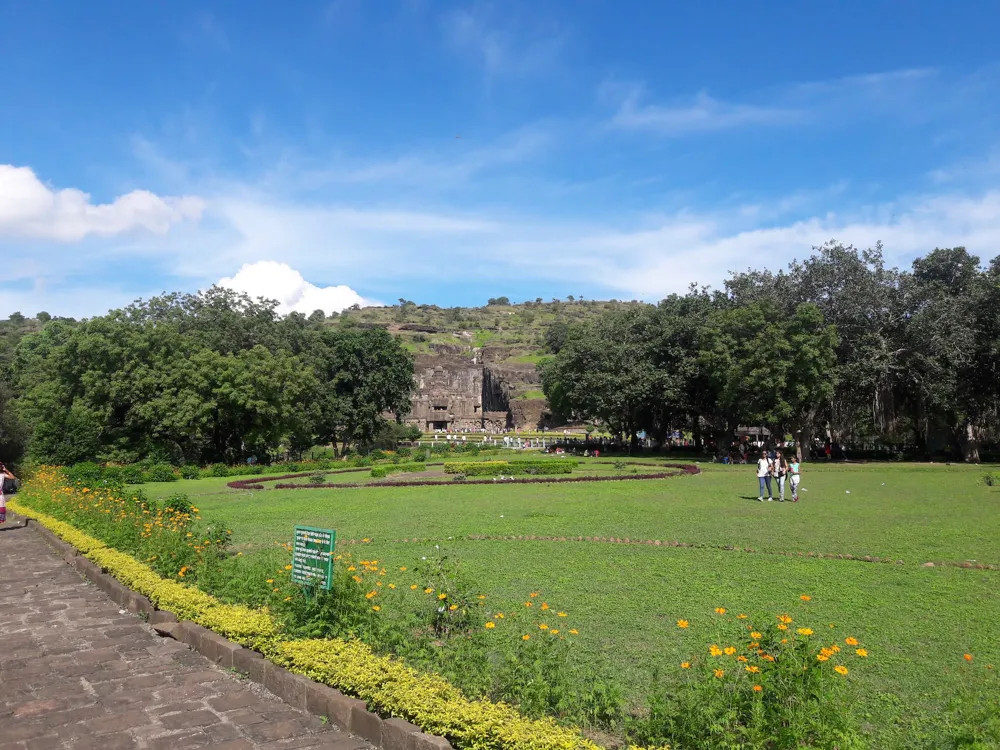Nestled in the enchanting landscape of Maharashtra and Goa, Dudhsagar Falls in Nasik stands as a marvel of nature. This magnificent waterfall, whose name translates to 'Sea of Milk', cascades down from a height of about 320 meters, making it one of the tallest waterfalls in India. Its breathtaking beauty is accentuated during the monsoon season, when the falls swell with rainwater, creating a powerful and mesmerizing spectacle. The surrounding area, rich in flora and fauna, adds to the allure of this natural wonder, making it a must-visit destination for nature enthusiasts and adventure seekers alike. Dudhsagar Falls is strategically located on the border between Goa and Karnataka, making it accessible from both states. The waterfall is part of the Bhagwan Mahavir Wildlife Sanctuary, which adds to its ecological importance. The River Mandovi, which feeds the falls, plays a crucial role in the region's ecosystem, supporting a diverse range of wildlife and vegetation. The region surrounding Dudhsagar Falls is a biodiversity hotspot. The dense forests are home to a variety of species including exotic birds, butterflies, and several endangered species. The lush greenery and the unique ecosystem create a haven for nature lovers and researchers. While primarily a natural formation, the architecture of the Dudhsagar Falls area is also noteworthy. The falls are framed by rugged cliffs and lush forests, creating a stunning visual contrast. The viewing platforms and trekking routes are carefully designed to offer the best views while preserving the natural integrity of the area. The Dudhsagar Waterfall has a four-tiered structure, each layer adding to its majestic appearance and offering different perspectives and experiences to the visitors. Over the years, human intervention has been minimal and mostly aimed at conservation and enhancing visitor experience. The construction of pathways, viewing decks, and minimalistic shelters blend seamlessly with the natural surroundings, ensuring a raw and authentic experience for visitors. Conservation efforts in the area are robust, focusing on preserving the natural beauty and ecological balance of Dudhsagar Falls. The local authorities, along with environmental groups, work tirelessly to maintain the habitat, regulate tourist activities, and ensure that the ecosystem remains undisturbed. The ideal time to visit Dudhsagar Falls is from October to May, with the monsoon season offering the most spectacular view of the falls. However, visitors should be cautious as the paths can be slippery and the water flow is significantly higher. Visitors should adhere to safety guidelines, stay on marked paths, and avoid venturing into restricted areas. It's advisable to visit in groups and always inform local authorities of your plans. There are several accommodation options ranging from luxury resorts to budget-friendly homestays in the vicinity of Dudhsagar Falls. Facilities like restrooms, eateries, and first aid are available, but it’s wise to carry essentials like water, snacks, and a first-aid kit. Dudhsagar Falls is accessible by road, rail, and trekking routes. The nearest railway station is Kulem, from where visitors can hire a taxi or opt for a trek. For those driving, the waterfall is well-connected by road with nearby cities like Goa and Bangalore. Trekking to the falls is a popular option, offering an adventurous route through the forest. Read More:Overview of Dudhsagar Falls, Nasik
Geographical Significance
Flora and Fauna
Architecture of Dudhsagar Falls, Nasik
Human Influence
Environmental Conservation Efforts
Tips When Visiting Dudhsagar Falls, Nasik
Best Time to Visit
Safety Precautions
Accommodation and Facilities
How To Reach Dudhsagar Falls, Nasik
Dudhsagar falls, Nasik
Nasik
Maharashtra Goa
NaN onwards
View nasik Packages
Nasik Travel Packages
View All Packages For Nasik
Top Hotel Collections for Nasik

Private Pool

Luxury Hotels

5-Star Hotels

Pet Friendly
Top Hotels Near Nasik
Other Top Ranking Places In Nasik
View All Places To Visit In nasik
View nasik Packages
Nasik Travel Packages
View All Packages For Nasik
Top Hotel Collections for Nasik

Private Pool

Luxury Hotels

5-Star Hotels

Pet Friendly



